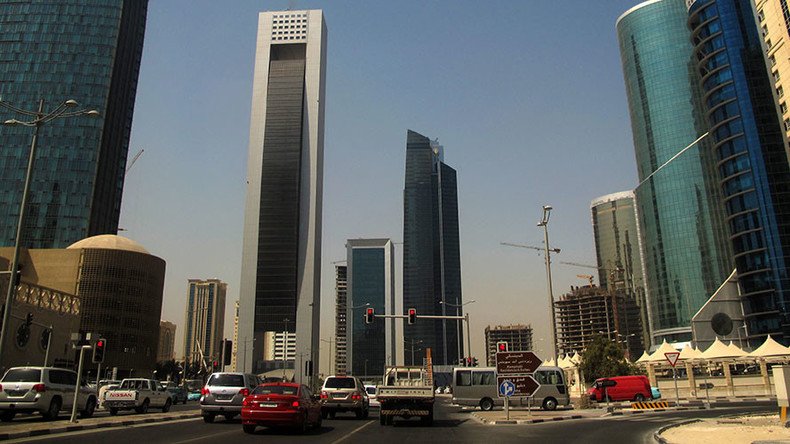Arab League nations v Qatar: How it all started

Bahrain, Saudi Arabia, the United Arab Emirates, Egypt and Yemen have cut diplomatic ties with Qatar, accusing it of supporting terrorism. Riyadh also accused Qatar of supporting Iranian-backed militants.
Alleged major hack
The decision to cut ties with Doha comes just weeks after comments published by the website of Qatar's state-run QNA news agency – allegedly from Qatar's ruling Emir Sheikh Tamim bin Hamad Al Thani – featured negative remarks about Saudi Arabia.
READ MORE: Key Arab League states cut ties with Qatar over ‘supporting terrorism’ (LIVE UPDATES)
Qatar's Gulf Arab neighbors responded with anger, blocking Qatari media. The Doha-based Al Jazeera was among the media outlets which were banned.
Qatar, however, claims that hackers took over the media outlet's website and published the comments, which it says were fake.
However, the recent media rift wasn't the only escalation of tensions between Qatar and its neighbors.
'Supporting Islamists'
Qatar has long faced criticism over its alleged support of Islamists, including the Sunni Islamist political group the Muslim Brotherhood, which has been outlawed by both Saudi Arabia and the United Arab Emirates (UAE).
Doha previously faced a backlash from Gulf countries led by Saudi Arabia for supporting former Egyptian President Mohammed Morsi, a Muslim Brotherhood member. Saudi Arabia, the UAE, and Bahrain recalled their ambassadors from Qatar over the situation in March 2014.
Those ambassadors returned to Qatar eight months later, after it forced some Brotherhood members to leave the country and quieted others.
However, the 2014 escalation was far less severe than the current rift, as it did not see a land and sea blockade, or the expulsion of Qatari citizens from its neighbors' territories.
Ties to Iran?
In a Monday statement, Saudi Arabia also accused Qatar of collaborating with Iran-backed militias in the largely Shiite eastern region of Qatif, and also in Bahrain. However, Qatar has previously denied ties to Tehran.
Qatar has adamantly denied that it funds extremist groups, despite claims from its regional neighbors and Western officials. However, it remains a major financial patron of the Hamas-controlled Gaza Strip and has been the home of exiled Hamas official Khaled Mashaal since 2012.
Monday spin
Bahrain and Saudi Arabia were the first to announce they were cutting ties with Qatar on Monday.
The Saudis’ state-run SPA news agency alleged that Qatar "embraces multiple terrorist and sectarian groups aimed at disturbing stability in the region, including the Muslim Brotherhood, ISIS [Islamic State, formerly ISIS/ISIL] and Al-Qaeda, and promotes the message and schemes of these groups through their media constantly.”
Riyadh also urged "all brotherly countries and companies" to cut ties with Qatar.
Egypt was the next country to jump on board, with Cairo stating that "the government of the Arab Republic of Egypt has decided to sever diplomatic relations with Qatar because of the continued hostility of the Qatari authorities towards Egypt." It also accused Doha of supporting terrorist organizations, including the Muslim Brotherhood.
Yemen later joined the growing list of countries turning away from Qatar, accusing it of working alongside its enemies in the ongoing civil war, Al Arabiya and Reuters reported, citing state news agency Saba.
It also stated that it supports the decision by the Saudi-led coalition in Yemen to remove Qatar from its ranks.
The eastern-based government of Libya was next, with Foreign Minister Mohammed Dairi announcing it was also cutting ties, according to Reuters.
The Maldives later followed suit, according to Al Arabiya.
Several airlines based in the UAE have said they will stop flying between Dubai and Doha from Tuesday, including Emirates, Etihad, FlyDubai, and Air Arabia.
Saudi Arabian Airlines (Saudia) has also suspended all flights to Qatar, the company tweeted on Monday.
The Monday decisions to cut ties with Qatar come just 10 days after US President Donald Trump visited Riyadh to call on Muslim countries to stand against Islamist extremists. He singled out Iran as a key source of funding and support for militant groups.















